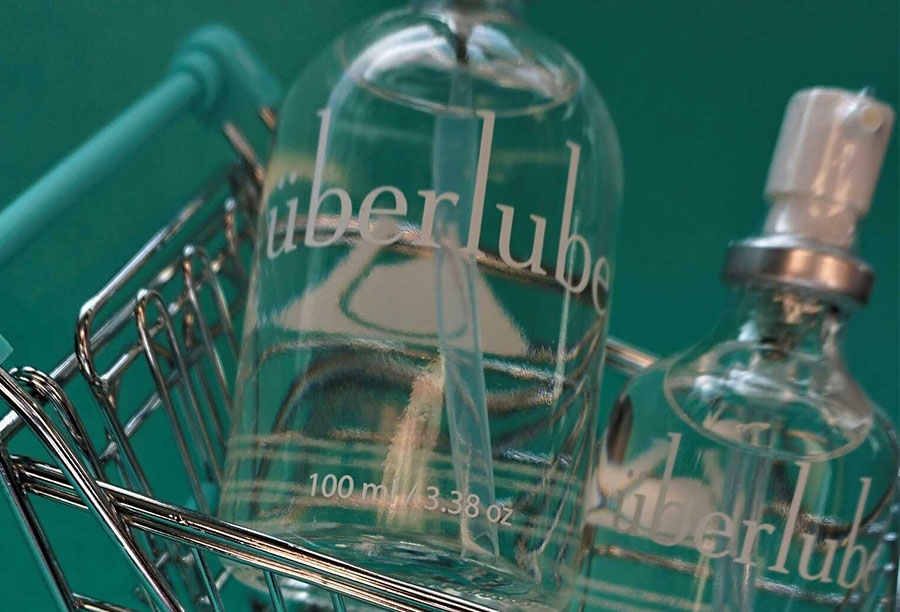“How to conceive when your menstrual cycle is undependable…”
In my first blog “Timing, timing, timing…is everything”, we discussed the importance of timing on the likelihood of conceiving. Timing your intercourse to occur with ovulation works well when your menstrual cycle is regular. But what do you do when your menstrual cycle is “undependable”, and you have irregular cycles? The first step is to see your physician to discuss why your cycles are irregular. Do you have polycystic ovarian syndrome (PCOS), do you have a chronic medical condition that may be causing the irregular cycles, or are you under- or overweight? Once you have been evaluated and are managing any potential underlying conditions, there are other things you can do to improve your fertility.
In addition to keeping track of your menstrual period, monitoring your cycle may include tracking changes in cervical mucus, libido, pain, or mood. Studies suggest that these methods only accurately predict ovulation about 50% of the time. However, optimizing at least a few of these techniques may be helpful.
Cervical mucus
Changes in cervical mucus occur throughout the menstrual cycle as a result of hormonal shifts in estrogen and progesterone. Women will typically have no mucus production during menses and for 3 to 4 days after the menstrual cycle. After that time the mucus becomes scant, cloudy, and sticky for 3 to 5 days. During the 3 to 4 days before, during, and immediately after ovulation, the mucus is abundant, clear, wet, and stretchy. This change in mucus occurs around the time of ovulation due to increases in estrogen and helps draw sperm into the cervix and uterus. Pregnancy rates are thus highest when intercourse occurs on the day of the peak mucus production. Finally, there are no secretions for 11 to 14 days during the luteal phase or second half of the cycle when progesterone is in abundance. The process then starts over with the next menstrual period.
Although monitoring changes in cervical mucus can assist with the timing of intercourse, these changes are not absolutely mandatory for a woman to become pregnant. Interestingly, the peak in cervical mucus production also correlates with an increase in basal body temperature and can predict the time of peak fertility more accurately than a menstrual calendar. Monitoring cervical mucus changes can be helpful for those women who don’t have regular cycles every month but requires a certain level of comfort with one’s body.
Luteinizing hormone (LH) detection kits
Luteinizing hormone (LH) is a hormone produced by a structure in the brain called the pituitary gland. LH drives ovulation and levels are at their highest 24 hours prior to ovulation, during the middle of the menstrual cycle. LH can be measured at home in the urine and daily testing around ovulation can help couples determine their fertile window. Studies show that LH kits are not always accurate and can underestimate the fertile window. Meaning, ovulation may occur up to two days after the LH surge, instead of just 24 hours later. So, then we are back to the basics, aren’t we? Frequency of intercourse is the single most effective way to conceive. Urinary LH testing may help reduce the time couples conceive, particularly if they are unable to have intercourse frequently. However, studies show that changes in cervical mucus predict likelihood of conception as well as or better than basal body temperature or urinary LH monitoring. This may be a benefit since LH kits cost about $20 for a two-month purchase.
Position
“You need to lie down on your back for 15 minutes after intercourse to become pregnant.” You’ve received this advice from your aunts, sisters, mothers, and friends. All well-intentioned. But is it true? No. The position does not affect the likelihood of pregnancy. It simply doesn’t. The reason – sperm do not move based on gravity. Mind. Blown…right?! Sperm will reach the egg no matter what you do or do not do. Why? Because that is their one and only function – to reach the egg. There is a chemical reaction on the head of the sperm that drives it to its destiny. So, relax…or don’t. It simply won’t matter. Oh…and as an aside, position will also not determine whether you have a boy or a girl. You get what you are blessed with.
Orgasms
Eventually, we would come to this. What about orgasms? Do they help with conception? The science shows that during orgasm, more sperm is found in the fallopian tube. However,…wait for it…there is no relationship between orgasm and fertility. Women who do not orgasm during intercourse are just as likely to conceive as women who do orgasm. We, of course, hope, that women ARE orgasmic during intercourse since intercourse is not ALL about having a baby. But for the 15% of women who never reach orgasm under ANY circumstance, this should provide a bit of reassurance. Whew.

Lubricants and Moisturizers
Lubricants: Let’s face it, trying to conceive on a schedule can immediately take all joy from the process. Over time, most couples will find it difficult to be stay revved up and ready to perform on demand. The stress of timing your intercourse can lead to vaginal dryness, dissatisfaction, and avoiding intimacy altogether.
Enter vaginal lubricants and moisturizers…Vaginal lubricants are water-based or hydroxyethylcellulose-based products that women can use during intercourse to minimize dryness and irritation. Studies in the lab suggest that some water-based lubricants may decrease fertility by affecting the ability of the sperm to move (motility) by 60 to 100%. However, studies in “real-time” suggest that these water-based products may actually be okay. Some patients prefer to use products that they have at home that are more “natural”. Women should know that olive oil and saliva also have a negative effect on sperm motility. In contrast, canola and mineral oil have shown no negative effect on sperm motility. The jury is still out on coconut oil.
Hydroxyethylcellulose-based lubricants such as Pre-Seed and ConceiveEase have not shown a negative effect on sperm motility. Given the different results of the effects of lubricants in the lab compared to real-life practice, it seems wise for women to use mineral or canola oil when using products at home, or hydroxyethylcellulose based lubricants when they are needed.
Moisturizers: Moisturizers and lubricants are not one and the same. As described above, a lubricant is used during intercourse to improve lubrication. A moisturizer on the other hand, is used several times a week at night to draw water into and thicken the vaginal walls. This makes intercourse less dry and less painful. And you don’t have to stop in the moment to apply it – benefit! However, because moisturizers have also been shown to negatively impact sperm quality, using it between acts of intimacy may be best.

Diet and Lifestyle
Let’s talk about everyone’s favorite topic – diet and lifestyle. You’ve heard me speak about weight and its effect on fertility on my podcast The After Visit Consult. It is a fact that fertility rates decrease in women who are either overweight or very underweight based on body mass index (BMI).
BMI is a calculation that describes the relationship between your weight and your height. A normal BMI ranges from 20-24. BMI < 20 is considered underweight and a BMI 24 is overweight. Women with a BMI 29 are considered obese and a BMI greater than 35 is considered morbidly obese, meaning the person is at significant risk of complications.
Women with a body mass index > 35 take twice as long to conceive and underweight women with a BMI < 19 take almost four times as long to conceive. Studies show that women that lose at least 5-10% of their body weight will improve the likelihood of ovulating and conceiving.
A healthy lifestyle will thus absolutely improve fertility for women who are not ovulating but there is little evidence that any dietary changes such as vegetarian, vegan, low fat, or vitamin enriched diets; or supplements or herbal remedies will improve fertility in women who ovulate normally. Everything in moderation.
Smoking
Smoking has a significant negative impact on fertility. In fact, smoking increases the likelihood of infertility by 60%. Women who smoke are also more likely to experience the menopause 1 to 4 years earlier, which supports the understanding that smoking accelerates loss of the eggs. Even more concerning – smoking is associated with an increased risk of miscarriage. Given the many negative effects of smoking, this should be an easy one for women who desire pregnancy. Quitting smoking is difficult, yes. But experiencing several miscarriages or suffering from years of infertility may prove to be more difficult. For men who smoke, a decrease in the number of sperm and the inability of sperm to move in the proper direction have been observed. However, these abnormalities have not been directly linked to infertility. But let’s be honest – it is beyond difficult for one partner to quit a habit while the other partner continues. Conceiving is a team effort between partners. Why not start joining forces early?
Alcohol
“I just drink a little alcohol.” Define “a little.” Alcohol is one of those social behaviors that no one wants to talk about, until it becomes a serious problem. We have conversations about the destructive effects of alcoholism but ignore the fact that alcohol also causes harm to normal tissues. Alcohol. Is. A. Carcinogen. Period. It is. Whether you want to accept it or not, alcohol is a carcinogen. It causes cancer. If alcohol can cause cancer, then why would we ignore the potential effects on fertility. We won’t. Women who drink greater than two drinks per day decrease their chances of fertility by 60%. The decision is yours. You can try to guess how much alcohol is safe, and how much alcohol is too much alcohol for your developing eggs. Or you can make a decision to cut back. This is another area where as a woman, you will have to decide what is most important to you.
Once women conceive, alcohol use should stop altogether because of the well documented negative effects on the developing fetus. There is no “safe” level of alcohol that has been established for pregnant mothers. For men, alcohol has no negative effect on sperm quality. But again, it is easier for one person not to drink when both people don’t drink, so if you can make the sacrifice for your child, shouldn’t your partner?
If you suffer from alcoholism, seek help. For many reasons.

Caffeine
No one enjoys a “grande, one shot sugar-free vanilla, extra hot, flat white with almond milk,” from Starbucks more than I do. A little cozy pick me up to start the day. Caffeine is great for giving us that little extra boost to “just get one more thing done”. But does caffeine affect our ability to conceive? Yes, it does, depending on how much. An 8-ounce cup of coffee contains about 100 milligrams (mg) of caffeine. Studies show that more than 250 mg of caffeine, which is equivalent to > 2 ½ cups of coffee per day, decreases the likelihood of conceiving by 45%. Drinking over 200 to 300 mg of caffeine, which is the equivalent of two to three cups of coffee per day, may increase the risk of miscarriage. Once pregnant, moderate caffeine consumption, one cup or less per day, has no negative effect on the developing baby.
Or better yet, go the decaf route for 9 months. A “large, decaf, one shot sugar-free vanilla, extra hot, latte no foam with almond milk,” from Lost Coffee may change your life…
As luck would have it, caffeine has no effect on semen quality in men.
Environment
Climate change exists. Climate change does not exist. The “debate” continues. But there is some data to suggest that exposure to environmental pollutants and toxicants may reduce fertility in women who are exposed to certain products used in industrial occupations such as dry cleaning and the print industries. The science also shows that heavy metals and pesticides may be more likely to cause men to have abnormal semen quality. Exposure to lead and industrial microwaves (not the ones in your homes) may also lead to difficulty conceiving.



0 Comments